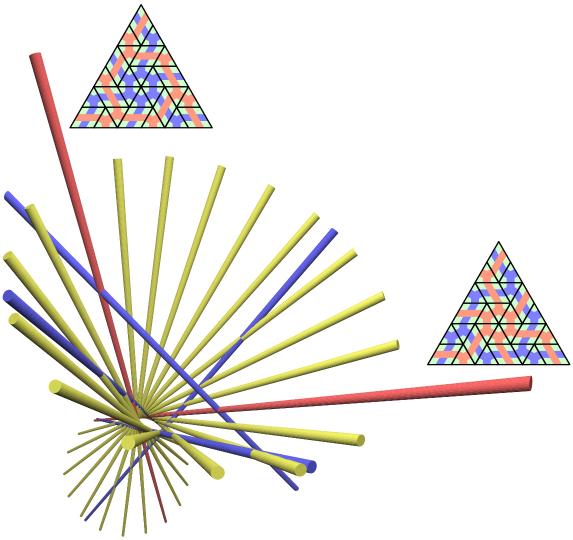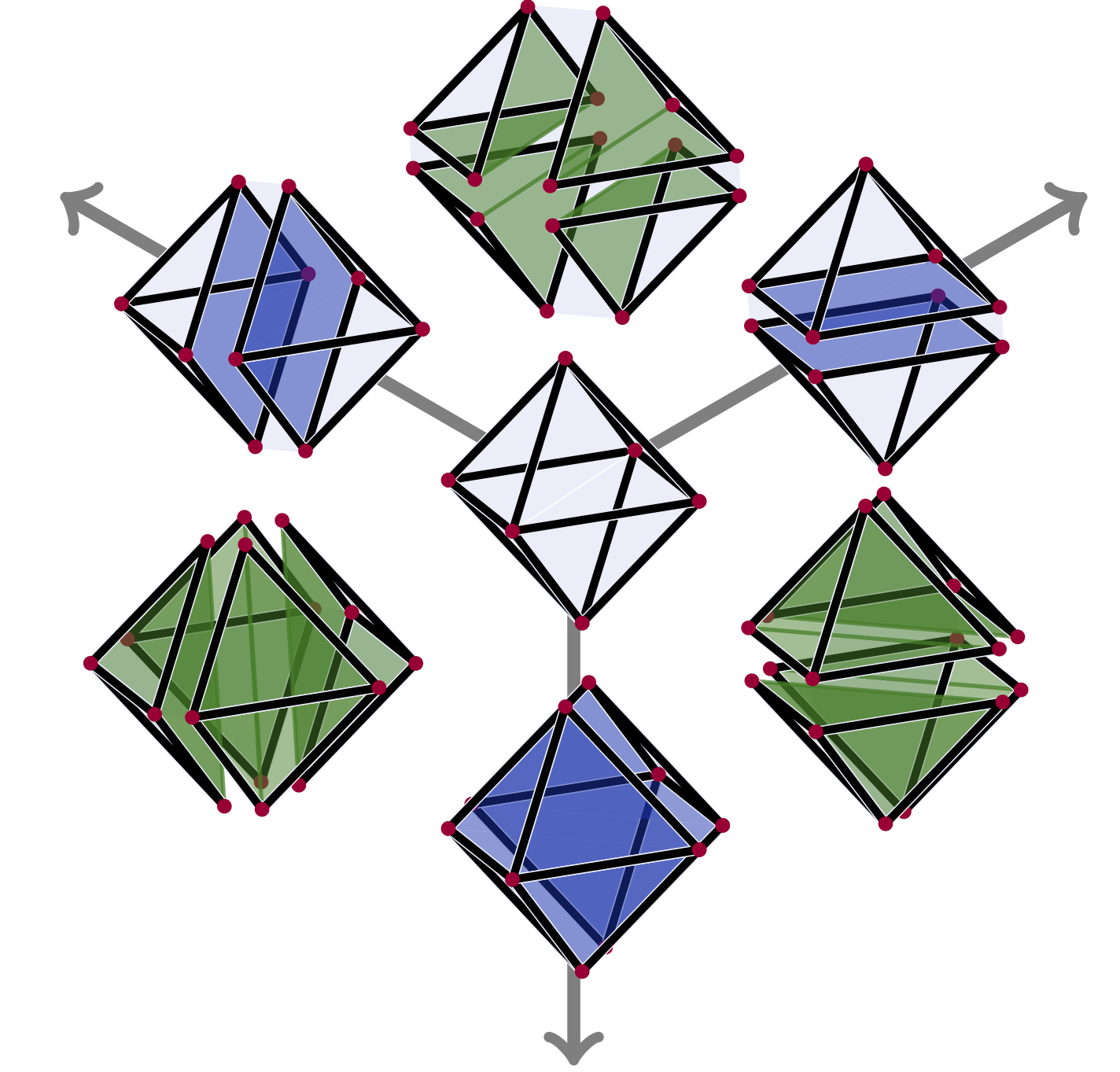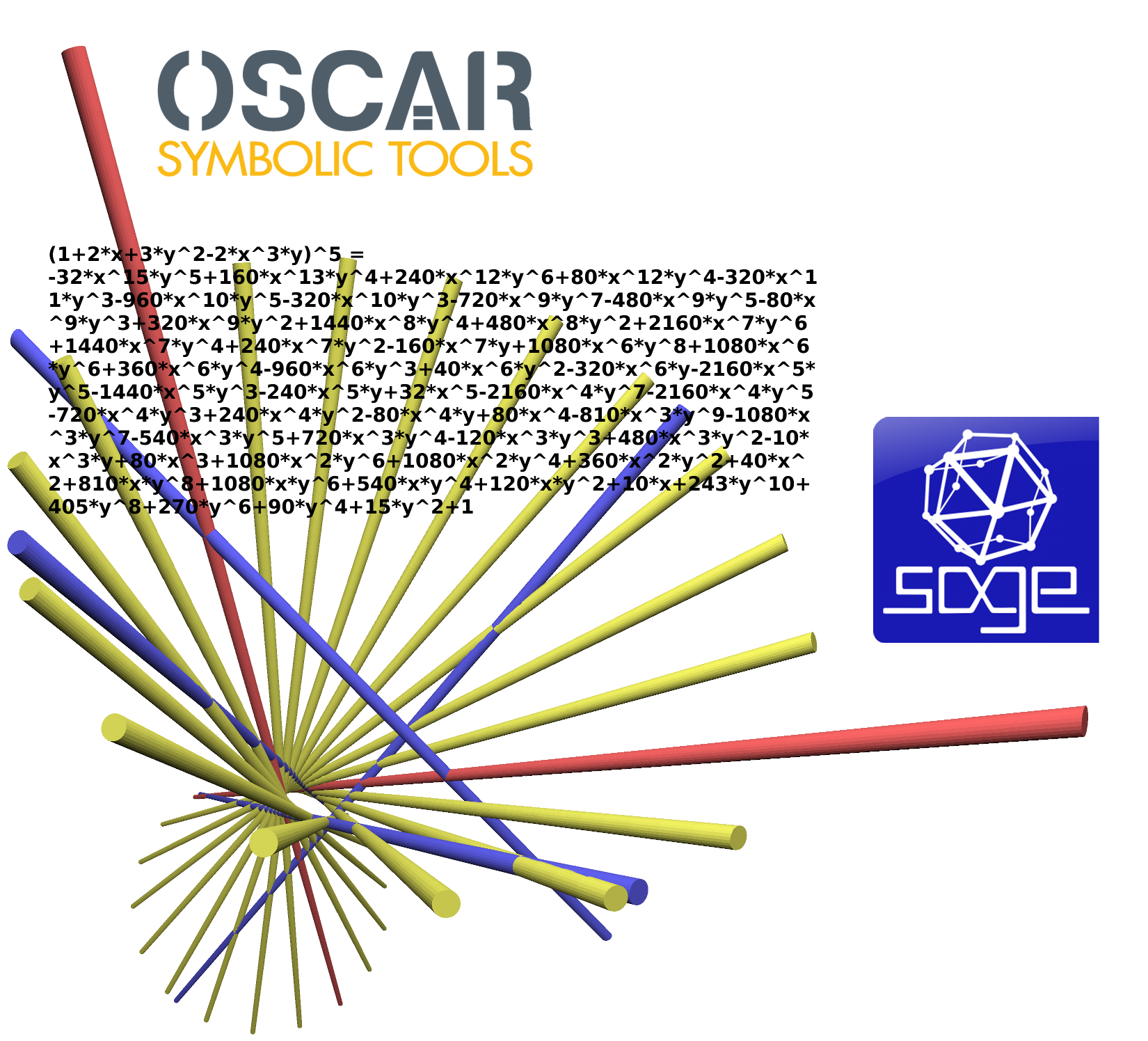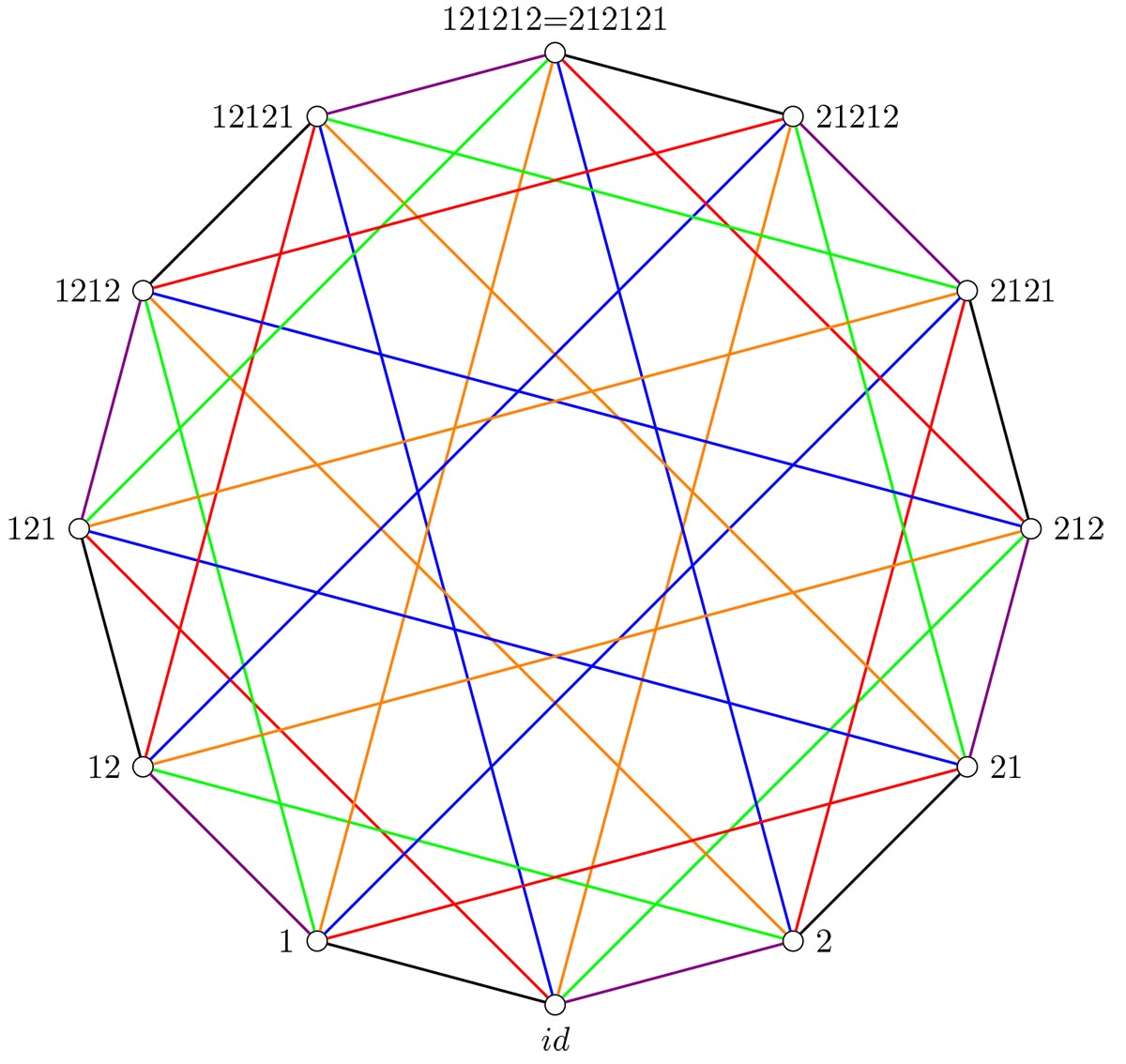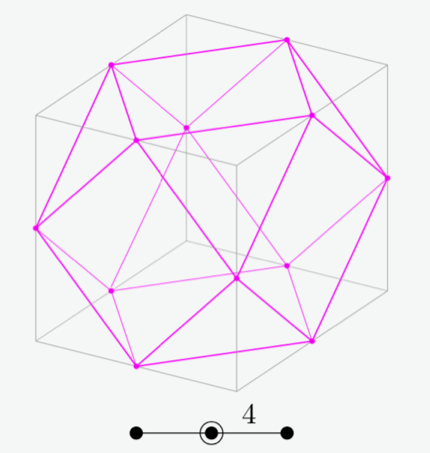Organizing Committee
- Anders Buch
Rutgers University - Leonardo Mihalcea
Virginia Polytechnic Institute and State University
Abstract
The seminar is aimed at graduate students and early career researchers, and it will showcase both surveys of particular topics, and the latest developments, in Schubert Calculus and related areas. All speakers are encouraged to make at least the first half of their talks introductory and strictly accessible to graduate students.
Talks will be Wednesdays from 3:30 PM- 4:30 PM ET. See the schedule below for details.
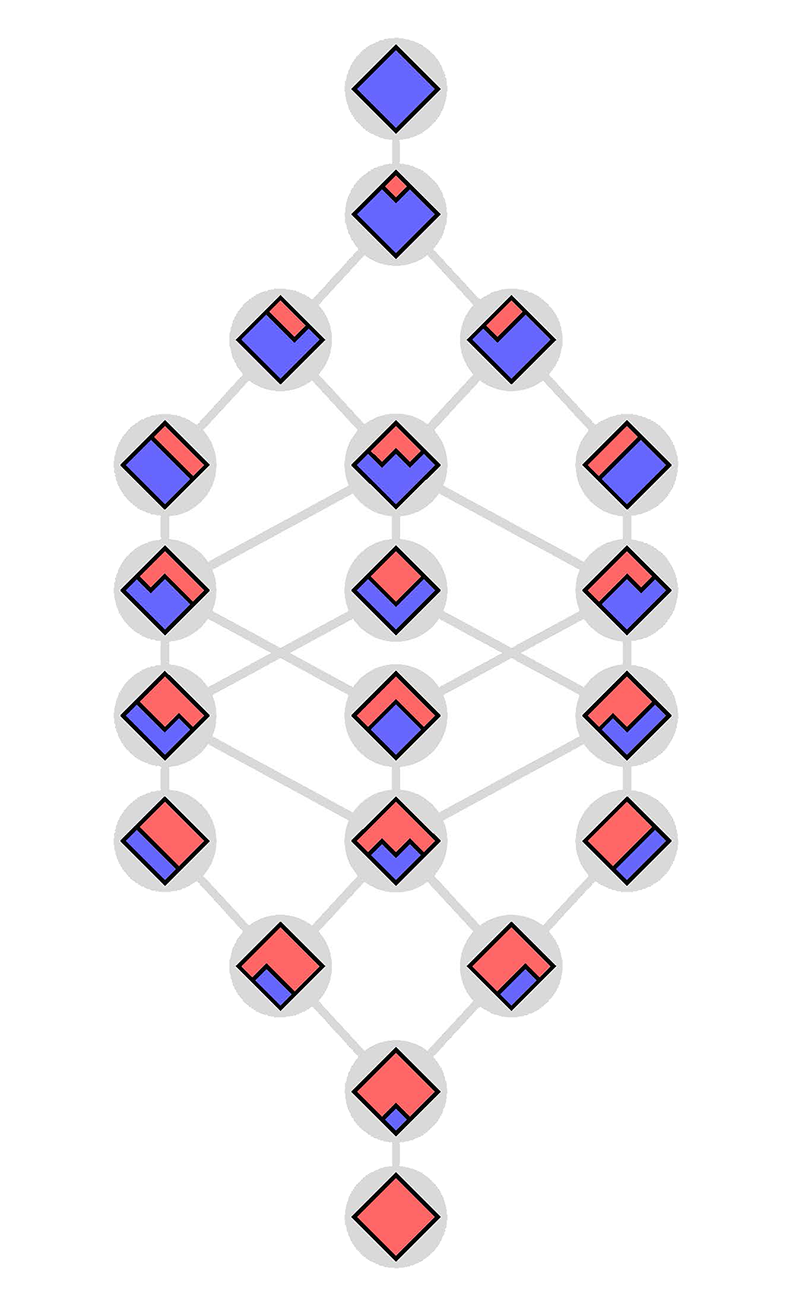
Workshop Schedule
Wednesday, February 24, 2021
-
3:30 - 4:30 pm EST
Wednesday, March 3, 2021
-
4:00 - 5:00 pm ESTQuantum integrability and GrassmanniansVirtual
- Paul Zinn-Justin, The University of Melbourne
Abstract
We will investigate in the simplest setting, how an``R-matrix'' (the building block of ``quantum integrable systems'') is attached to the equivariant cohomology of Grassmannians. We will compute the R-matrix in the case of CP^1 and discuss how the result generalizes to arbitrary Grassmannians. As an application, we shall derive the AJSBilley formula (restriction of Schubert classes to fixed points).
Wednesday, March 10, 2021
-
3:30 - 4:30 pm ESTSpringer fibers and the Delta ConjectureVirtual
- Sean Griffin, Brown University
Abstract
Springer fibers are a family of varieties that have remarkable connections to representation theory and combinatorics. Springer constructed an action of the symmetric group on the cohomology ring of a Springer fiber, and used it to geometrically construct the Specht modules (in type A), which are the irreducible representations of the symmetric group. In this talk, I will survey some of the many nice properties of Springer fibers. I will then introduce a new family of varieties generalizing the Springer fibers, and show how they are connected to the (recently proved) Delta Conjecture from algebraic combinatorics. We’ll then use these varieties to geometrically construct the induced Specht modules. This is joint work with Jake Levinson and Alexander Woo.
Wednesday, March 17, 2021
-
3:30 - 4:30 pm EDTSchubert Products for Permutations with Separated DescentsVirtual
- Daoji Huang, Brown University
Abstract
We say that two permutations w and v have separated descents at position k if w has no descents before k and v has no descents after k. We give a counting formula in terms of reduced word tableaux for computing the structure constants of products of Schubert polynomials indexed by permutations with separated descents. This generalizes previous results by Kogan '00, rediscovered using different methods by Knutson-Yong '04, Lenart '10, and Assaf '17, that solved special cases of this separated descent problem where one of the permutations is required to have a single descent. Our approach uses generalizations of Schutzenberger's jeu de taquin and the Edelman-Greene correspondence via bumpless pipe dreams.
Wednesday, March 31, 2021
-
3:30 - 4:30 pm EDTThe isomorphism problem for Schubert varieties.Virtual
- Edward Richmond, Oklahoma State University
Abstract
Schubert varieties in the full flag variety of Kac-Moody type are indexed by elements of the corresponding Weyl group. In this talk, I will discuss recent work with William Slofstra where we give a practical criterion for when two such Schubert varieties (from potentially different flag varieties) are isomorphic, in terms of the Cartan matrix and reduced words for the indexing Weyl group elements. As a corollary, we show that two such Schubert varieties are isomorphic if and only if there is an isomorphism between their integral cohomology rings that preserves the Schubert basis. As an application, we show that the isomorphism classes of Schubert varieties in a given flag variety are controlled by graph automorphisms of the Dynkin diagram.
Wednesday, April 7, 2021
-
2:00 - 3:00 pm EDTThe unramified affine springer fiber and the nabla operatorVirtual
- Erik Carlsson, UC Davis
Abstract
I'll present a new result with A. Mellit, which gives a combinatorial formula for a diagonalizing operator for the modified Macdonald polynomials, known as the nabla operator. This formula was discovered by searching for a Schubert-type basis of a certain explicit module from Haiman's polygraph theory, which is identified with both the matrix elements of this operator, and the equivariant homology of the unramified affine Springer fiber studied by Goresky, Kottwitz, and Macpherson.
Wednesday, April 21, 2021
-
3:30 - 4:30 pm EDTSchubert Calculus via bosonic operatorsVirtual
- Gleb Nenashev, Brown University
Abstract
I will present a definition and some important properties of the bosonic operators for back-stable Schubert polynomials. The operators act on the left weak Bruhat order (divided difference and Monk’s rule use the right side action on permutations in my notations). These operators with an extra condition give sufficiently enough linear equations for the structure constants of flag varieties. In particular, they provide a recurrent formula for the structure constants. In some special cases it is easy to check the positivity of the structure constants using this formula, examples will be presented. One of the advantages of our method is that we do not need to use formulas for Schubert polynomials and back-stable Schubert polynomials. Nevertheless if time permits, I will also show how to establish the pipe dreams formula using these operators.
Wednesday, April 28, 2021
-
3:30 - 4:30 pm EDTThe Abelian/non-Abelian correspondence and mirror symmetryVirtual
- Elana Kalashnikov, Harvard University
Abstract
The Abelian/non-Abelian correspondence is a powerful tool that can be used to study GIT quotients V//G, where V is a vector space. Such GIT quotients include type A flag varieties and quiver flag varieties. The principle of the Abelian/non-Abelian correspondence is that a GIT quotient V//G can be studied by considering the much simpler Abelian GIT quotient V//T, where T is maximal torus of G. I'll discuss applications of the Abelian/non-Abelian correspondence to quantum cohomology and mirror symmetry of type A flag varieties and quiver flag varieties, focusing on rim-hook removal rules and Plücker coordinate mirrors. Part of this talk will report on joint work with Wei Gu.
Wednesday, May 5, 2021
-
3:30 - 4:30 pm EDTEquivariant Schubert Calculus of Peterson VarietiesVirtual
- Rahul Singh, Virginia Polytechnic Institute and State University
Abstract
Peterson varieties are certain singular subvarieties of flag manifolds, naturally admitting one-dimensional torus action. Starting with a natural basis for the equivariant homology of a Peterson variety, we construct a dual basis in cohomology and show that the structure constants of the cohomology ring are positive with respect to this basis. We also discuss the sense in which the fundamental classes of the Peterson varieties exhibit a stability analogous to the stability of Schubert classes, and how this can be used to streamline various calculations in the Schubert calculus of Peterson varieties. This is joint work with Rebecca Goldin and Leonardo Mihalcea.
All event times are listed in ICERM local time in Providence, RI (Eastern Daylight Time / UTC-4).
All event times are listed in .
ICERM local time in Providence, RI is Eastern Daylight Time (UTC-4). Would you like to switch back to ICERM time or choose a different custom timezone?
Confirmed Speakers & Participants
Talks will be presented virtually or in-person as indicated in the schedule below.
- Speaker
- Poster Presenter
- Attendee
- Virtual Attendee
-
Dan Abramovich
Brown University
-
Ashleigh Adams
UC Davis
-
Adam Afandi
Colorado State University
-
Tair Akhmejanov
University of California-Davis
-
Kamyar Amini
Sharif University of Technology
-
David Anderson
Ohio State University
-
Federico Ardila
San Francisco State University
-
Ahmed Umer Ashraf
University of Western Ontario
-
Olga Azenhas
University of Coimbra
-
Christin Bibby
Louisiana State University
-
Sara Billey
University of Washington
-
Aram Bingham
Tulane University
-
Madeline Brandt
Brown University
-
Michel Brion
Université Grenoble Alpes
-
Juliette Bruce
University of California, Berkeley / MSRI
-
Anders Buch
Rutgers University
-
Amanda Burcroff
Durham University
-
Mahir Bilen Can
Tulane University
-
Erik Carlsson
UC Davis
-
Melody Chan
Brown University
-
Anastasia Chavez
University of California, Davis
-
Linda Chen
Swarthmore College
-
Sunita Chepuri
University of Michigan
-
Xinle Dai
University of Waterloo
-
Papri Dey
University of Missouri
-
Theo Douvropoulos
University of Massachusetts, Amherst
-
Anne Dranowski
Institute for Advanced Study
-
Balazs Elek
Cornell University
-
Laura Escobar
Washington University- St. Louis
-
Christopher Eur
Stanford University
-
Matthew Faust
Texas A&M University
-
Netanel Friedenberg
Yale University
-
William Fulton
University of Michigan
-
Nir Gadish
MIT
-
Maria Gillespie
Colorado State University
-
Andrey Glubokov
Ave Maria University
-
Vassily Gorbounov
Higher School of Economics, Russia
-
Elisa Gorla
University of Neuchatel
-
Eugene Gorsky
UC Davis
-
Sean Griffin
Brown University
-
Kangjin Han
Daegu-Gyeongbuk Institute of Sciences and Technology (DGIST)
-
Megumi Harada
MCMASTER UNIVERSITY
-
Milena Hering
The University of Edinburgh
-
Yifeng Huang
University of Michigan
-
Daoji Huang
Brown University
-
Anthony Iarrobino
Northeastern University
-
Bogdan Ion
University of Pittsburgh
-
David Jensen
University of Kentucky
-
Shuai Jiang
Virginia Tech
-
Michael Joswig
TU Berlin & MPI Leipzig
-
Nidhi Kaihnsa
Brown University
-
Elana Kalashnikov
Harvard University
-
Siddarth Kannan
Brown University
-
Syu Kato
Kyoto University
-
Hannah Keese
Cornell University
-
Gary Kennedy
Ohio State University
-
Nguyen Khanh
Institut Camille Jordan
-
Patricia Klein
University of Minnesota
-
Allen Knutson
Cornell University
-
Jakub Koncki
Institute of Mathematics, Polish Academy of Sciences
-
Lukas Kühne
Max Planck Institute for Mathematics in the Sciences
-
Thomas Lam
University of Michigan
-
Matthew Larson
Stanford University
-
Kang-Ju Lee
Seoul National University
-
Shiyue Li
Brown University
-
David Lowry-Duda
ICERM & Brown University
-
Antonio Macchia
Freie Universität Berlin
-
Olya Mandelshtam
University of Waterloo
-
Madhusudan Manjunath
INDIAN INSTITUTE OF TECHNOLOGY BOMBAY
-
Hannah Markwig
Eberhard Karls University of Tübingen
-
Mikhail Mazin
Kansas State University
-
Alex McDonough
Brown University
-
Leonardo Mihalcea
Virginia Polytechnic Institute and State University
-
Elizabeth Milićević
Haverford College
-
Fatemeh Mohammadi
University of Bristol
-
Philippe Nadeau
Institut Camille Jordan
-
Hiroshi Naruse
University of Yamanashi
-
Gleb Nenashev
Brown University
-
David Oetjen
Virginia Tech
-
Daniel Orr
Virginia Tech
-
Jianping Pan
University of California, Davis
-
Sam Payne
University of Texas at Austin
-
Nicolas Perrin
Versailles Saint-Quentin-en-Yvelines University
-
Nathan Pflueger
Amherst College
-
Zhijun (George) Qiao
University of Texas Rio Grande Valley
-
Rohini Ramadas
Brown University
-
Edward Richmond
Oklahoma State University
-
Konstanze Rietsch
King's College London
-
Richard Rimanyi
University of North Carolina at Chapel Hill
-
Colleen Robichaux
University of Illinois at Urbana-Champaign
-
Mahrud Sayrafi
University of Minnesota
-
Hal Schenck
Iowa State University
-
Maiko Serizawa
University of Ottawa
-
Melissa Sherman-Bennett
UC Berkeley/Harvard
-
Ryan Shifler
Salisbury University
-
Connor Simpson
University of Wisconsin -- Madison
-
Rahul Singh
Virginia Polytechnic Institute and State University
-
Miruna-Stefana Sorea
SISSA, Trieste
-
Avery St. Dizier
Univeristy of Illinois at Urbana-Champaign
-
Eric Stucky
University of Minnesota-Twin Cities
-
Changjian Su
University of Toronto
-
Yuri Sulyma
Brown University
-
Mariel Supina
University of California, Berkeley
-
Anna Tao
Brown University
-
Nicola Tarasca
Virginia Commonwealth University
-
Mihail Tarigradschi
Rutgers University
-
Andrew Tawfeek
University of Washington
-
Ayush Tewari
Eberhard Karls Universitat Tubingen
-
Jeremy Usatine
Brown University
-
Ravi Vakil
Stanford University
-
Lorenzo Vecchi
Alma Mater Studiorum - Università di Bologna
-
Emanuele Ventura
University of Bern
-
Andrzej Weber
Uniwersity of Warsaw
-
Anna Weigandt
University of Michigan
-
Lauren Williams
Harvard University
-
Corey Wolfe
Tulane University
-
Cameron Wright
University of Washington
-
Weihong Xu
Rutgers
-
Damir Yeliussizov
Kazakh-British Technical University
-
Alexander Yong
University of Illinois at Urbana-Champaign
-
Semin Yoo
University of Rochester
-
Chi Ho Yuen
Brown University
-
Claudia Yun
Brown University
-
Paul Zinn-Justin
The University of Melbourne

